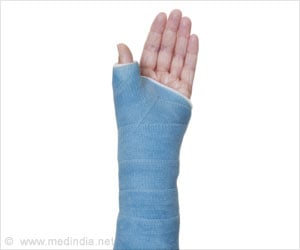Scientists' struggle to create robots tiny enough to imprint microscopic patterns onto microchips and for medical purposes may soon be over, for UC Berkeley researchers have said that it may be possible to create new species of slave bacteria to perform such jobs instead.
Lead researcher Jan Liphardt says that such "biorobots" can be created by stripping down bacteria, with only enough of a genome to perform certain tasks, such as swimming along a chemical trail using their flagella, secreting another chemical as they go.He said that these "biobots" - or minicells - could create the kind of microscopic features needed on microprocessors, or gene chips, used to test for millions of specific DNA sequences at once, reports New Scientist.
These biobots can be controlled using the light of a specific frequency.
The varying amount of light would turn the biobots on or off by activating pigments carried by them.
They can also be used to perform delicate tasks and can even compete in biobot war games, trying to track each other down and making a kill by secreting antibiotics.
Source-ANI
SPH












